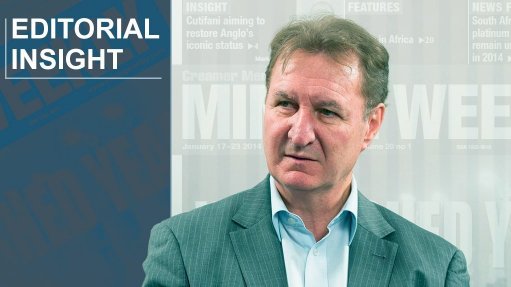
The renewable-energy factor that predominates the latest Integrated Resource Plan (IRP) provides an excellent reason for Cabinet to instruct the National Treasury to put a hold on its plan to introduce a carbon tax on January 1 next year.
Enshrined in the latest IRP is the strongest promise yet of a more significant inherent potential decline in emissions intensity than anything the imposition of a carbon tax promises.
So, the job has been done and South Africa, like other countries, must at least freeze its carbon tax plans.
With the country’s economy now in a technical recession, every effort must be made to grow the economy and not shrink it.
The high tariffs imposed by State electricity utility Eskom have already put many ferromanganese, ferrochrome, silicomanganese smelters and the like on the brink.
Many have already spent fortunes on emission control, which protects the environment to a far greater extent than is the case in other countries.
But high Eskom tariffs have resulted in South Africa losing market share in the ferroalloys market. South Africa’s leadership in ferrochrome has been usurped by China, which has ironically used raw chrome ore imported from South Africa to put it in the top spot.
Eskom, a State entity, is directly to blame for South African beneficiation jobs being exported, a situation that will worsen if South Africa allows the Treasury to have its way with a carbon tax.
The Machadodorp ferromanganese plant is on care and maintenance because of Eskom’s high electricity tariffs and the Sakura Ferroalloys plant, in Malaysia, that replaced it is performing very fruitfully.
If Treasury is so hellbent on obtaining tax revenue, it should be bold and impose a tax on the export of raw chrome on the grounds that export destinations of the raw ore are atmosphere polluters that should not be entrusted with raw material in the interests of global climate change mitigation.
Instead of the Chinese producing ferrochrome in China with a South African raw material, it can be invited to invest in an emissions-controlled ferrochrome plant in this country, which hosts the lion’s share of the world’s chromium.
During this month’s visit to China by President Cyril Ramaphosa, many news reports circulated on China’s keenness to invest in ferroalloys projects.
Eskom needs to introduce special commodity-linked tariffs and the innovative use of power late at night and in the early hours of the morning to renew job gene- ration and wealth creation and help the country emerge from its recession.
If a carbon tax is imposed, more South African smelters will close, more raw ore will go to China and more carbon will be emitted there than from smelters here. In light of the new IRP, it makes no sense at all.